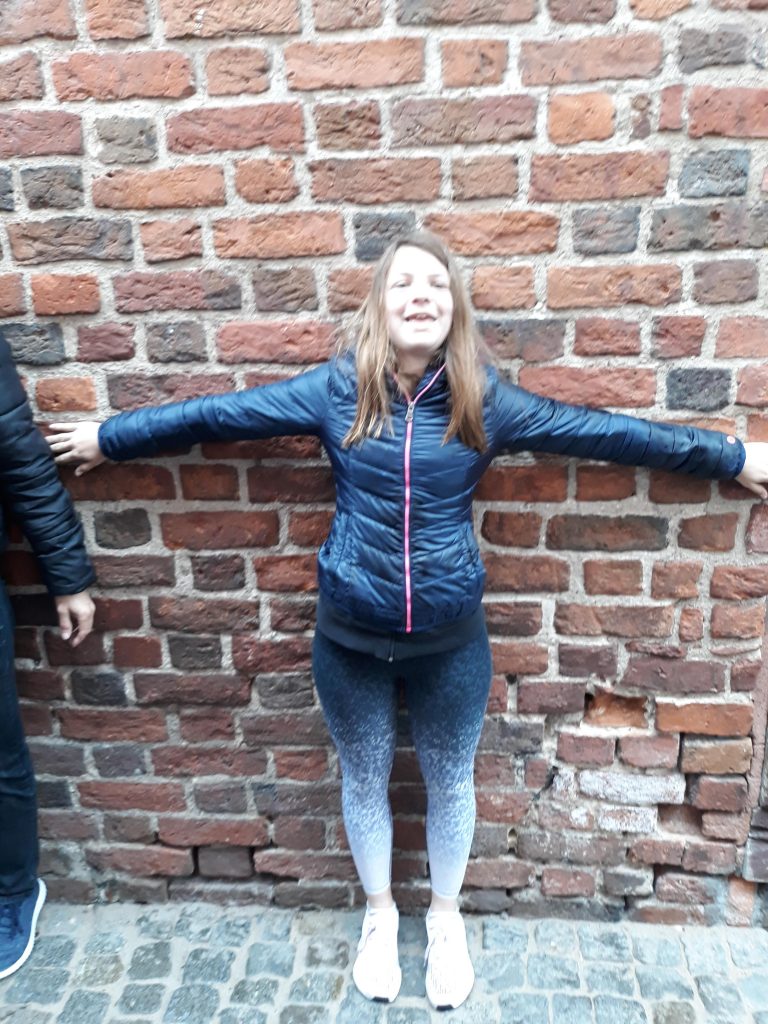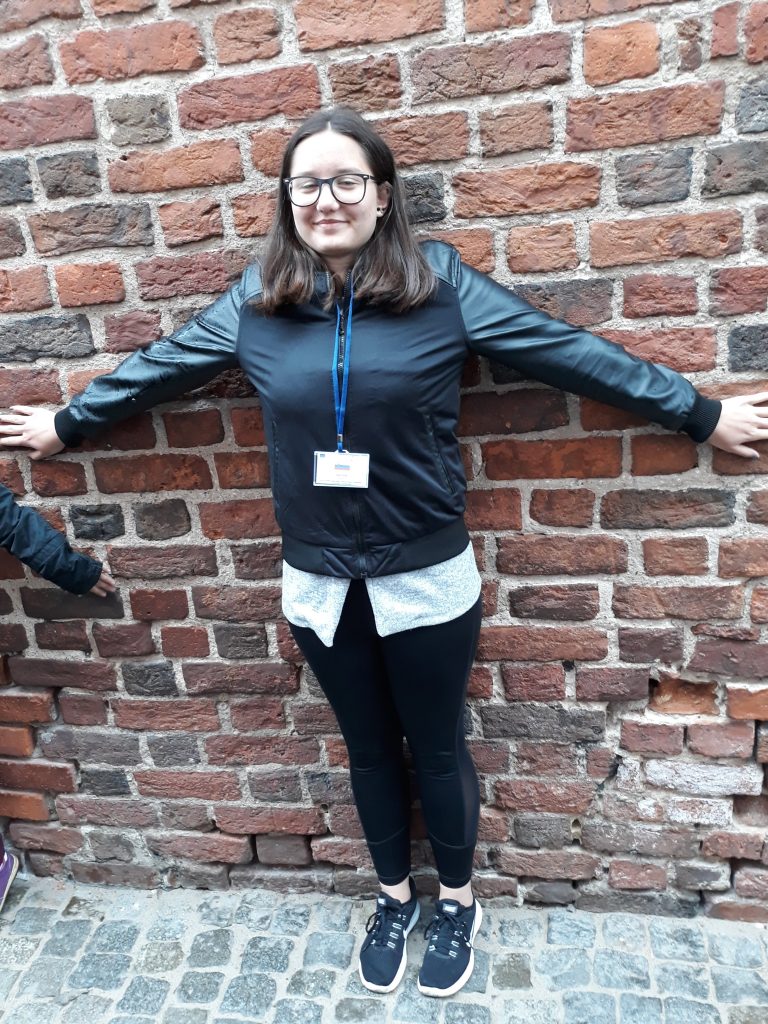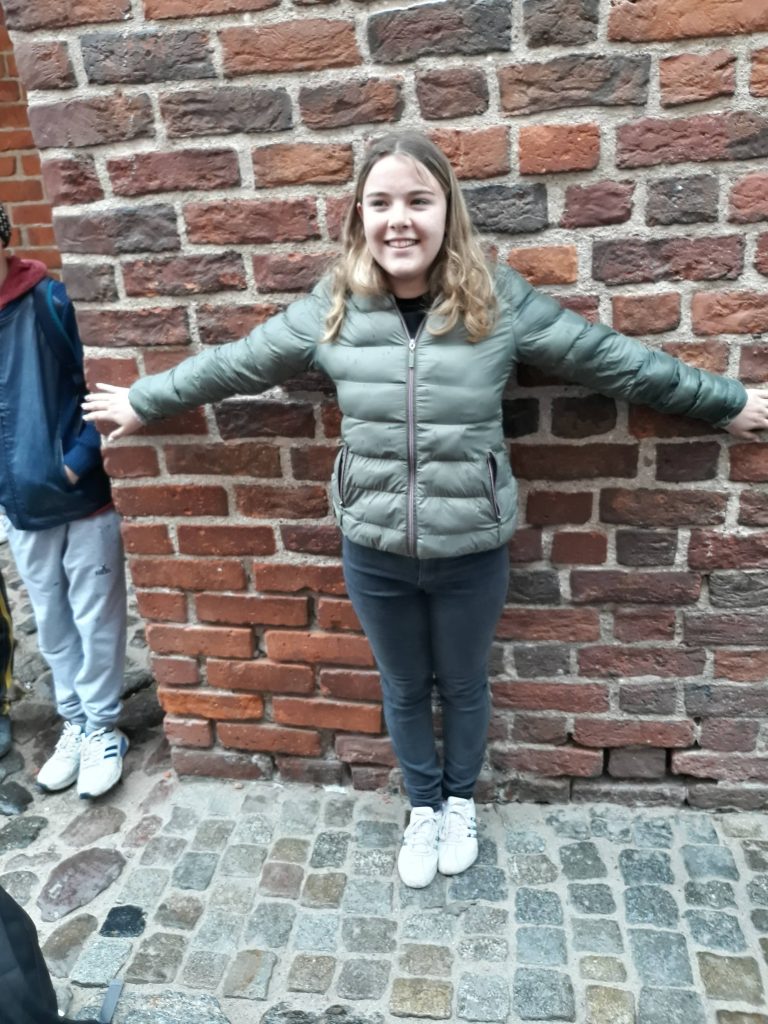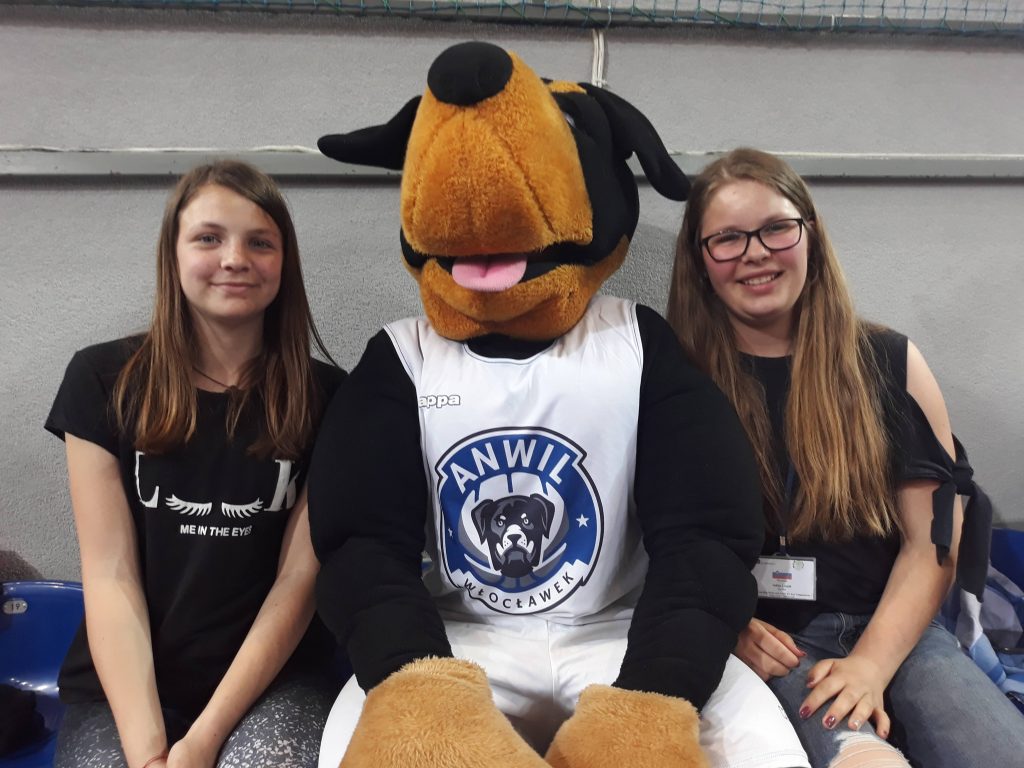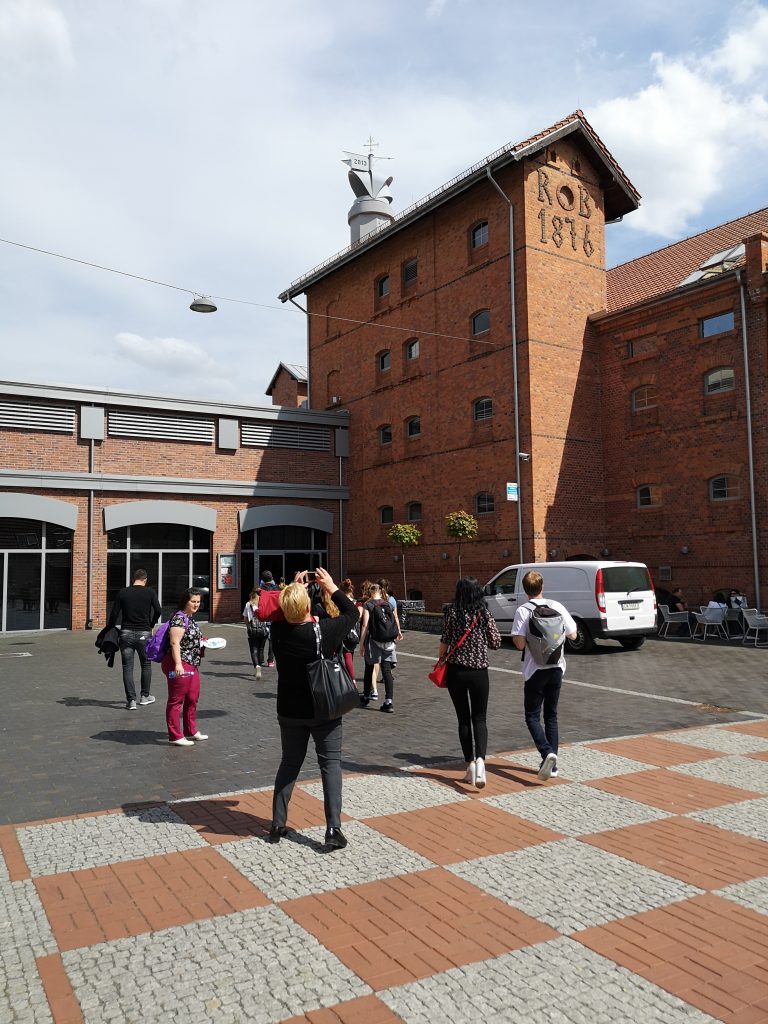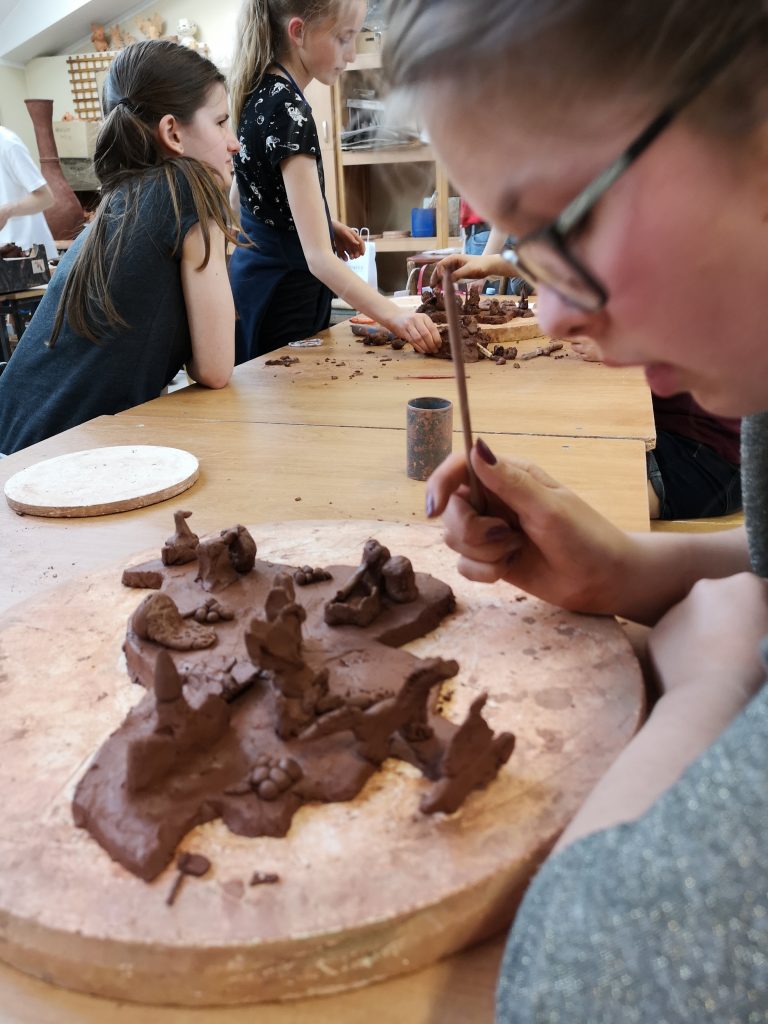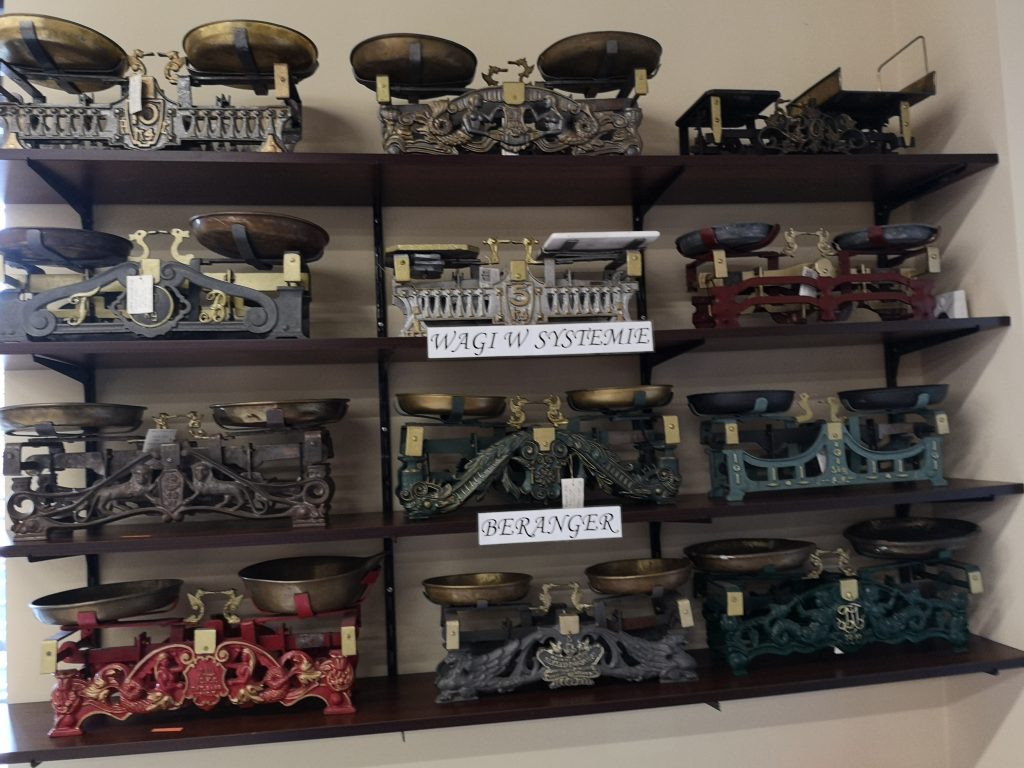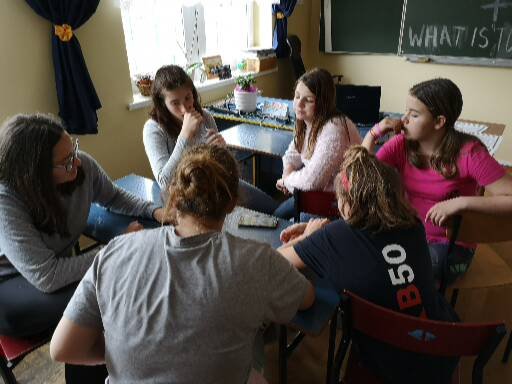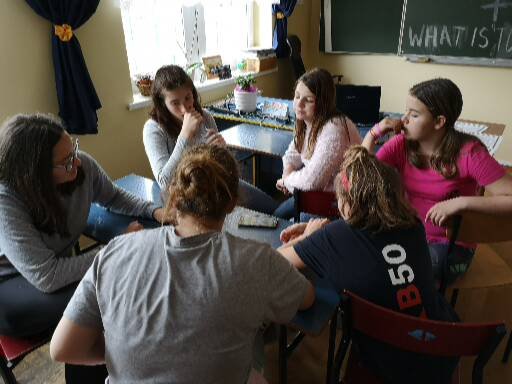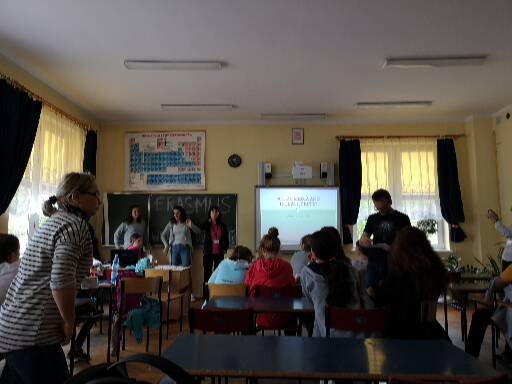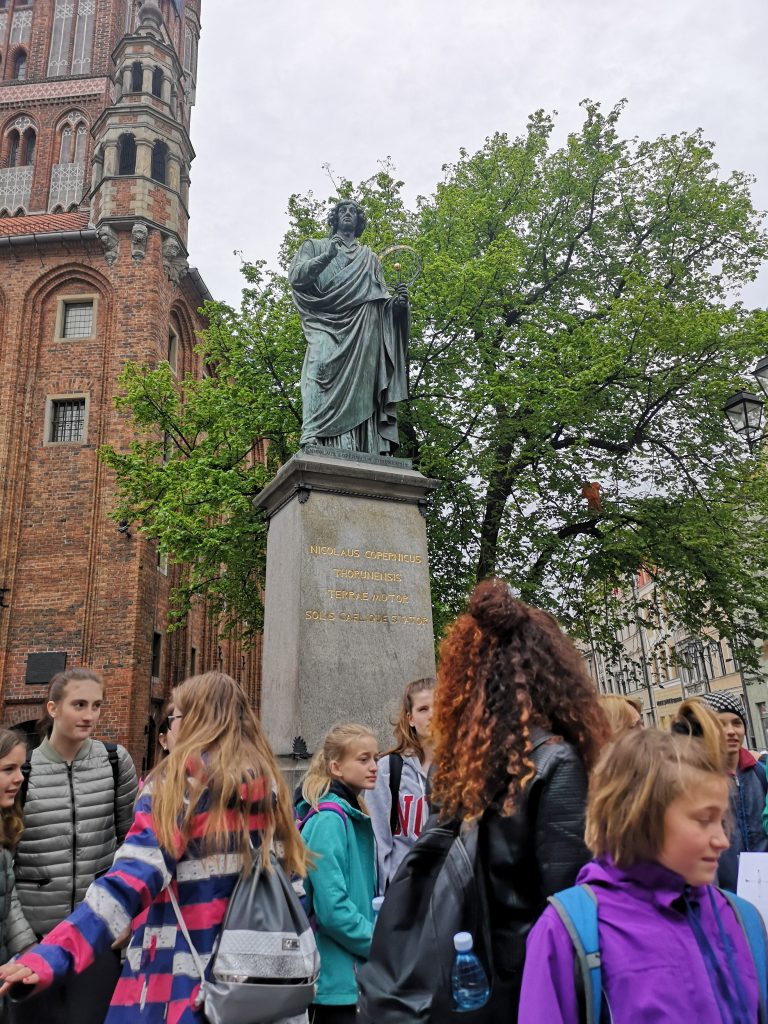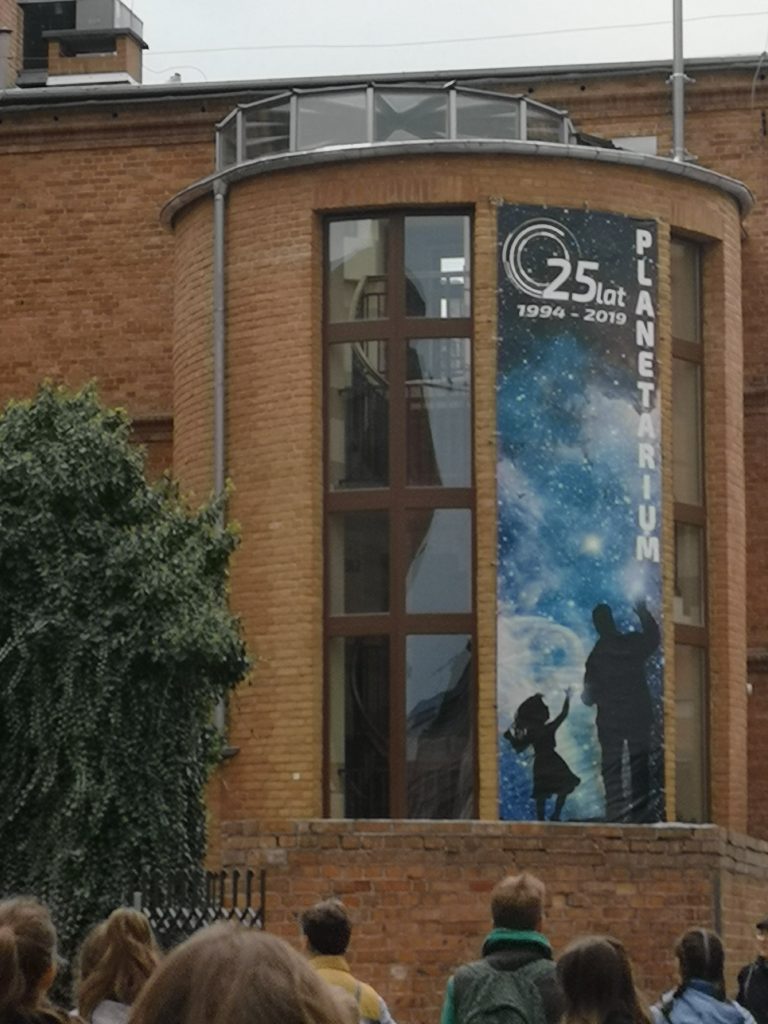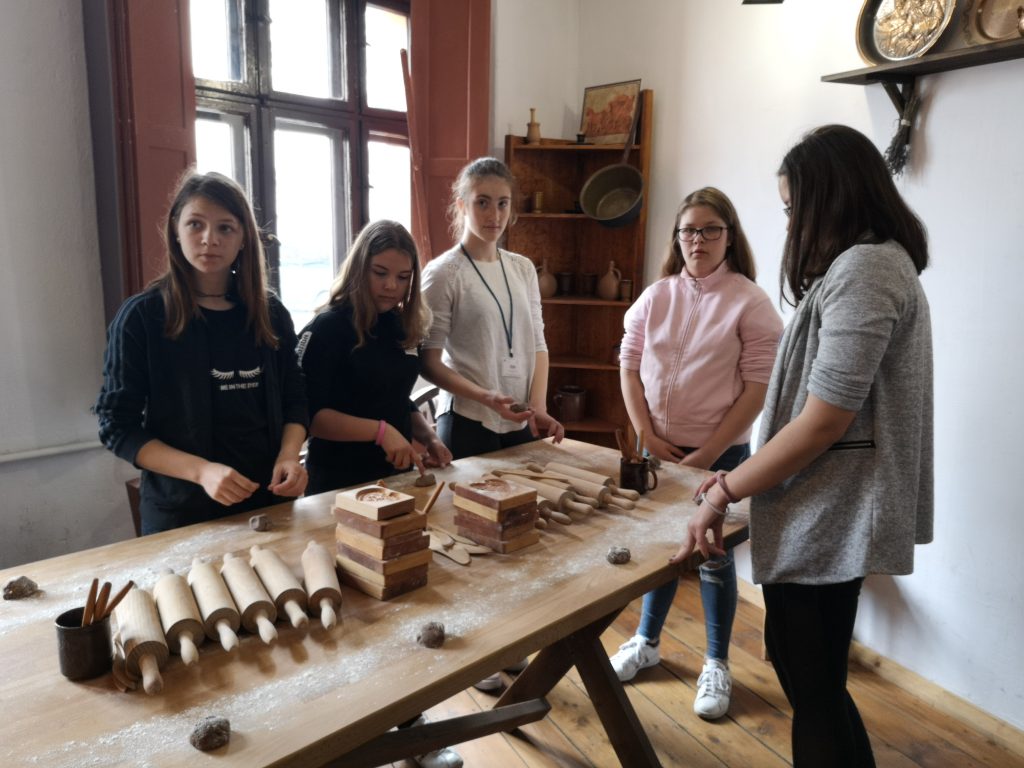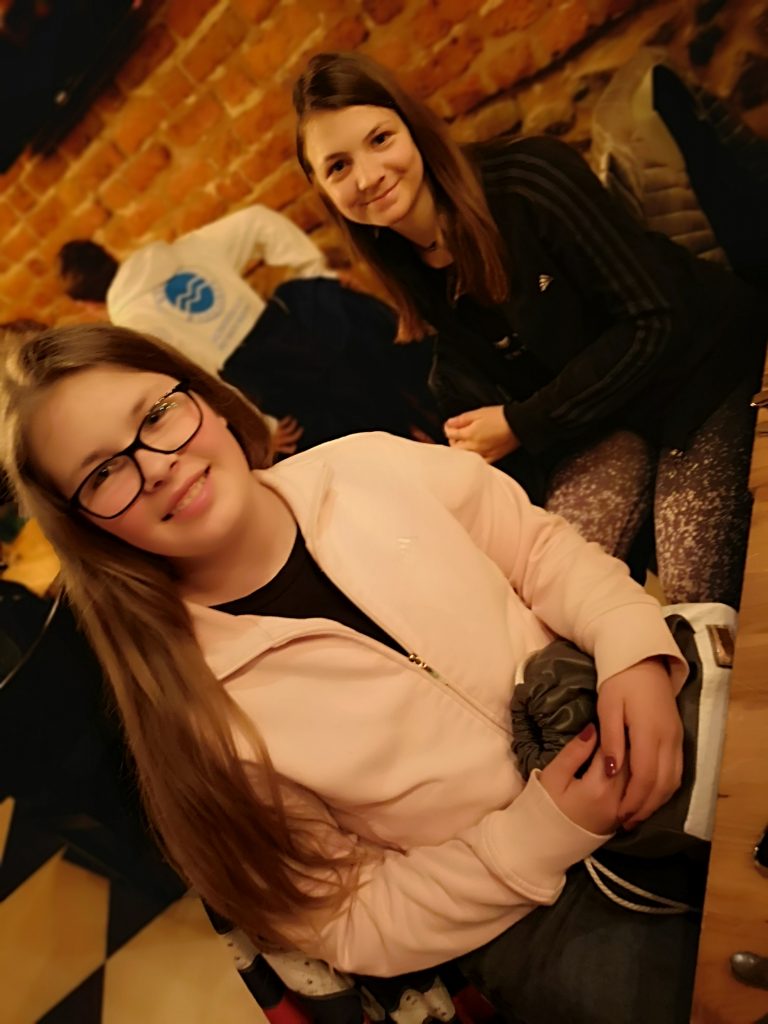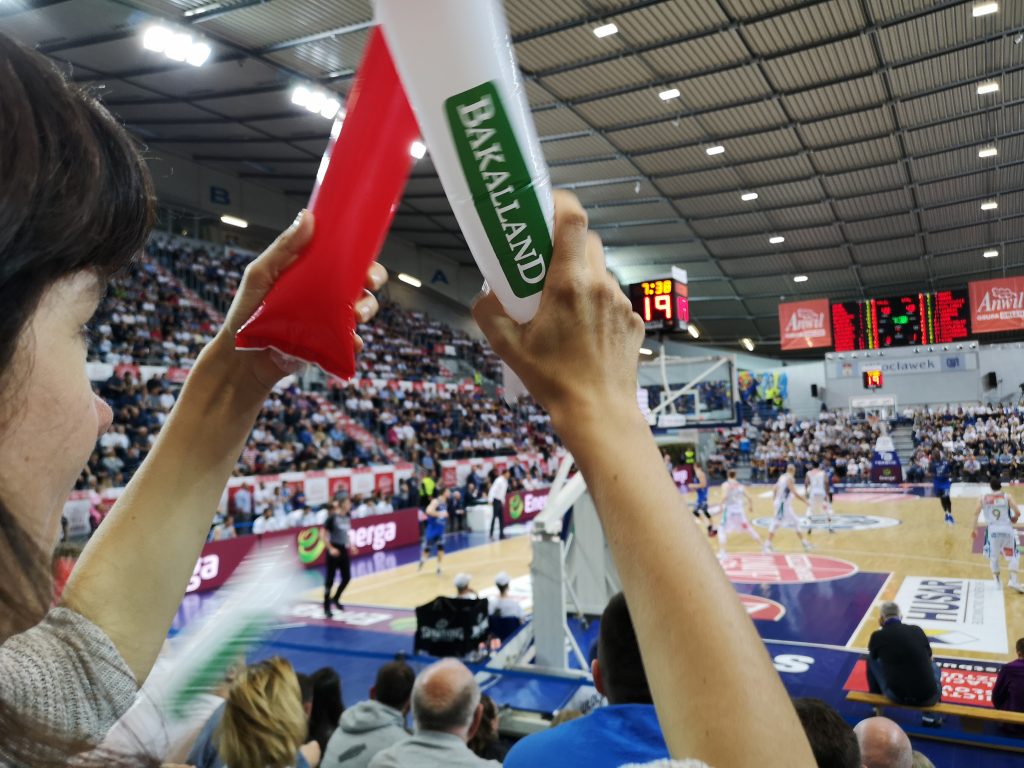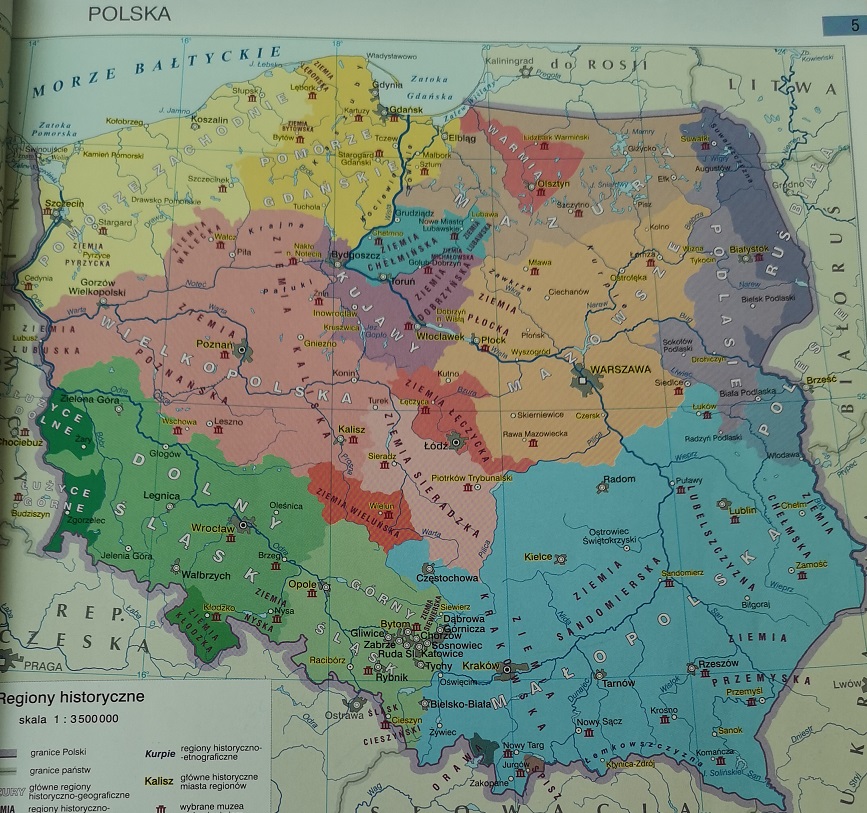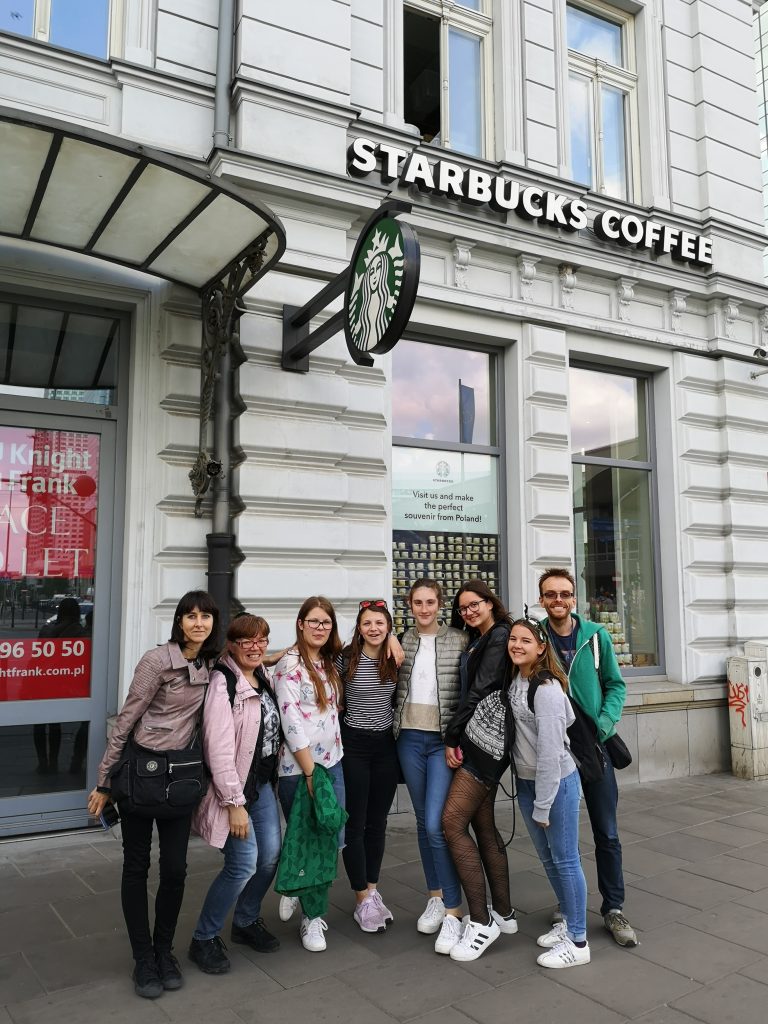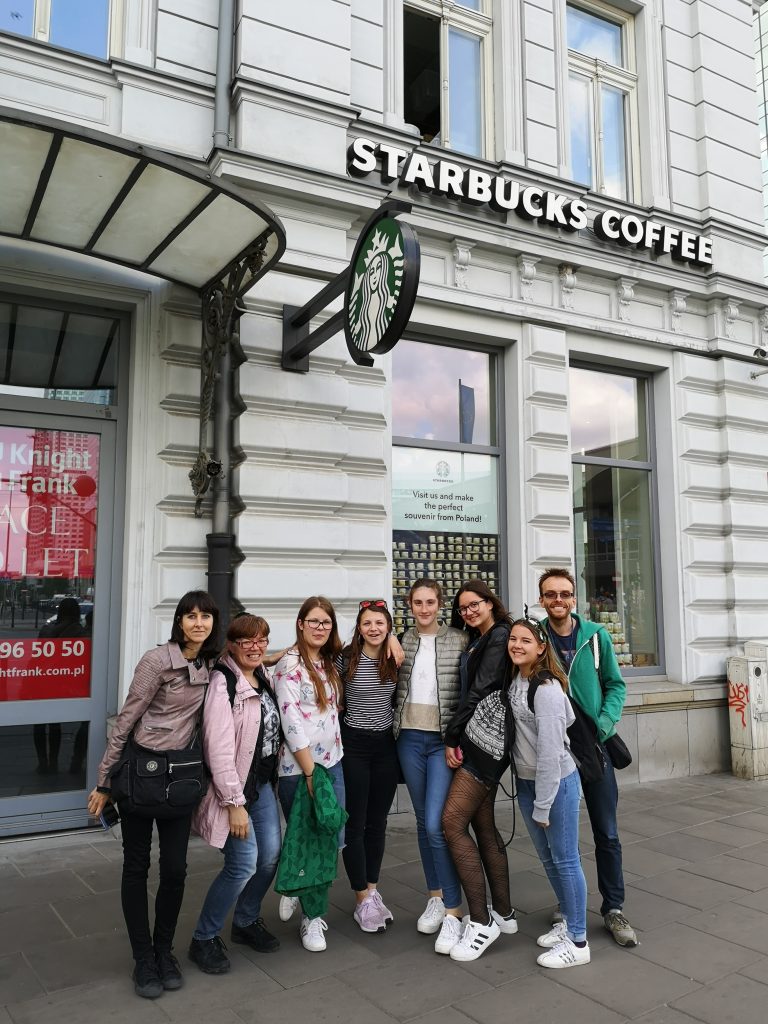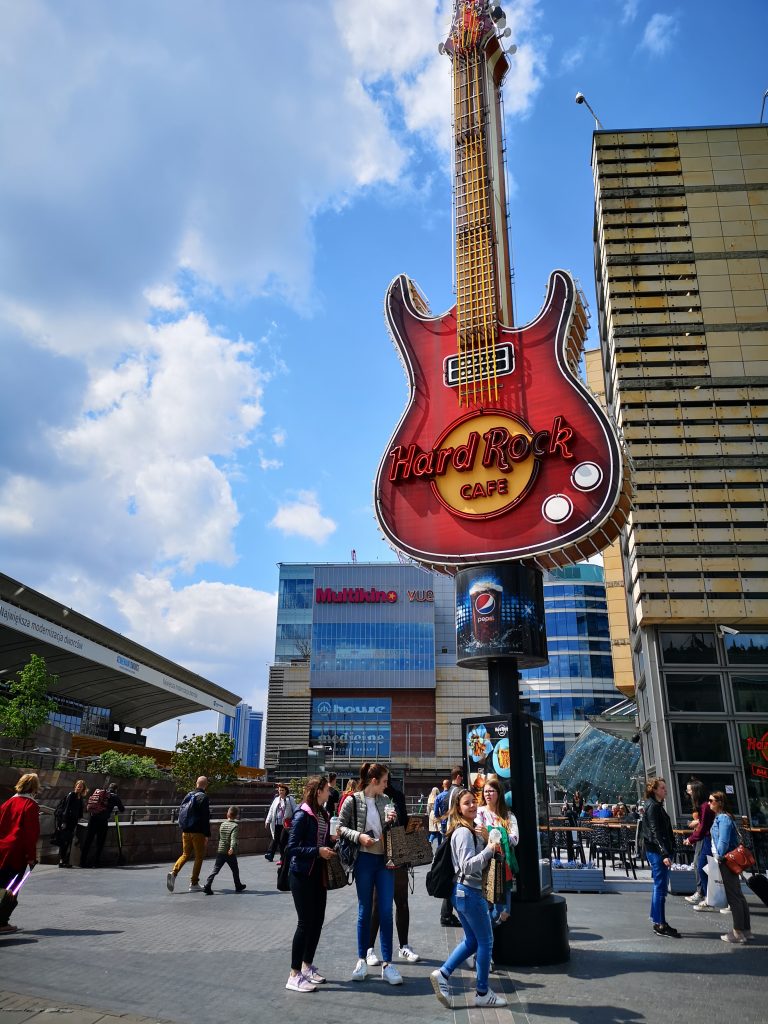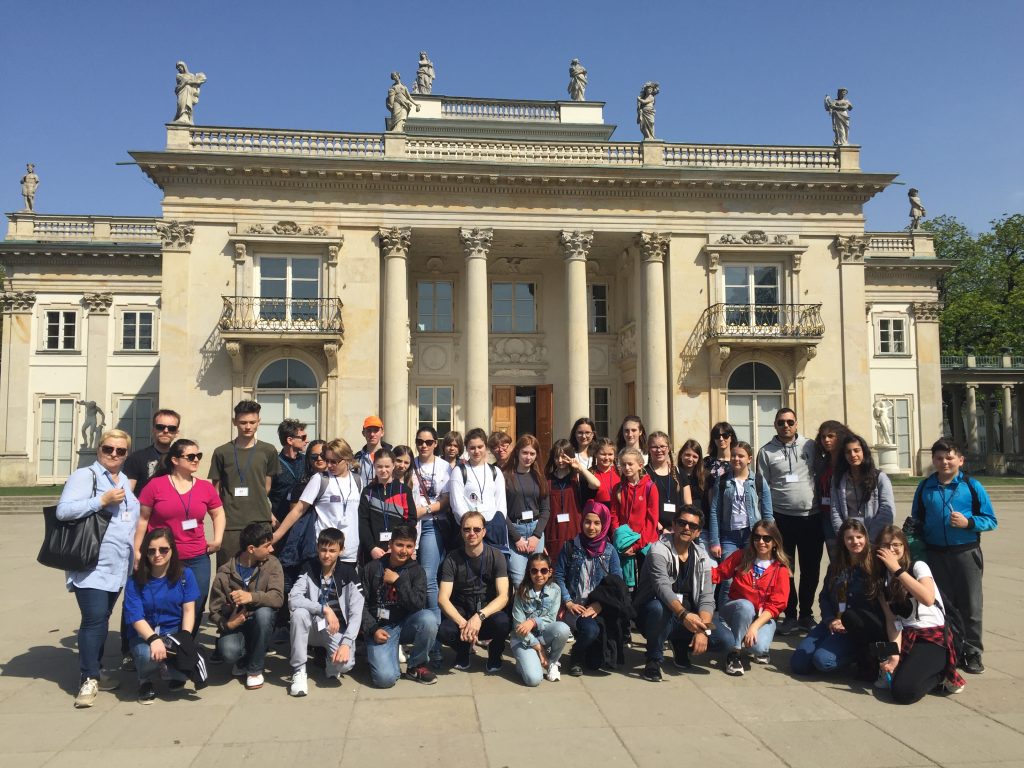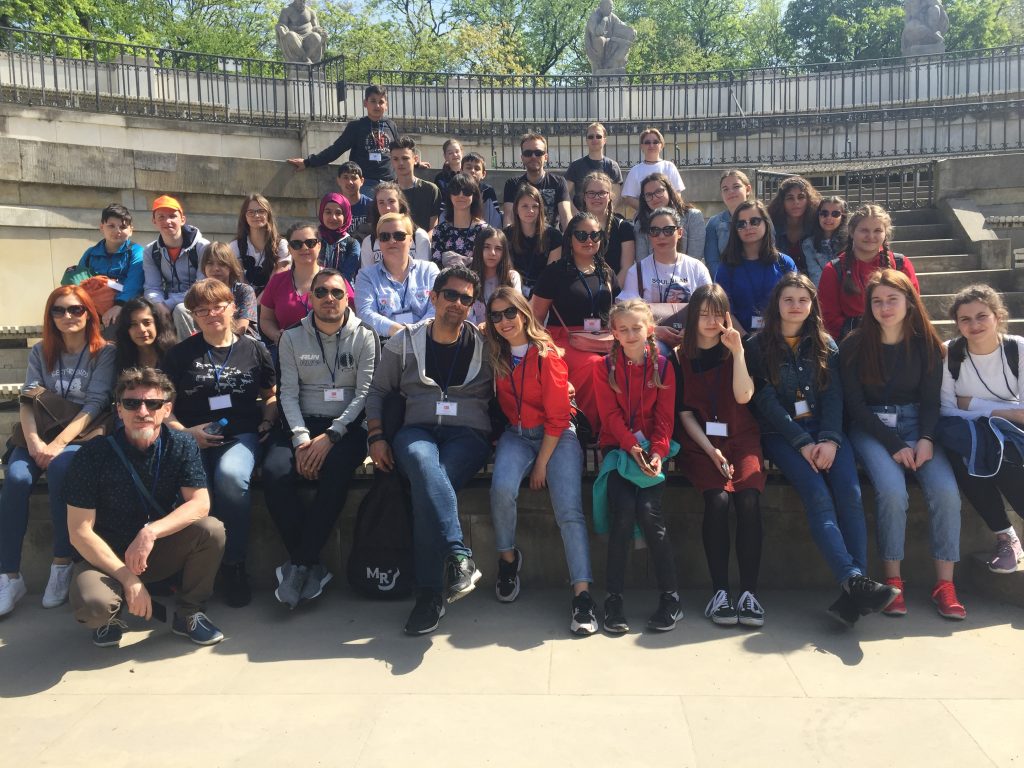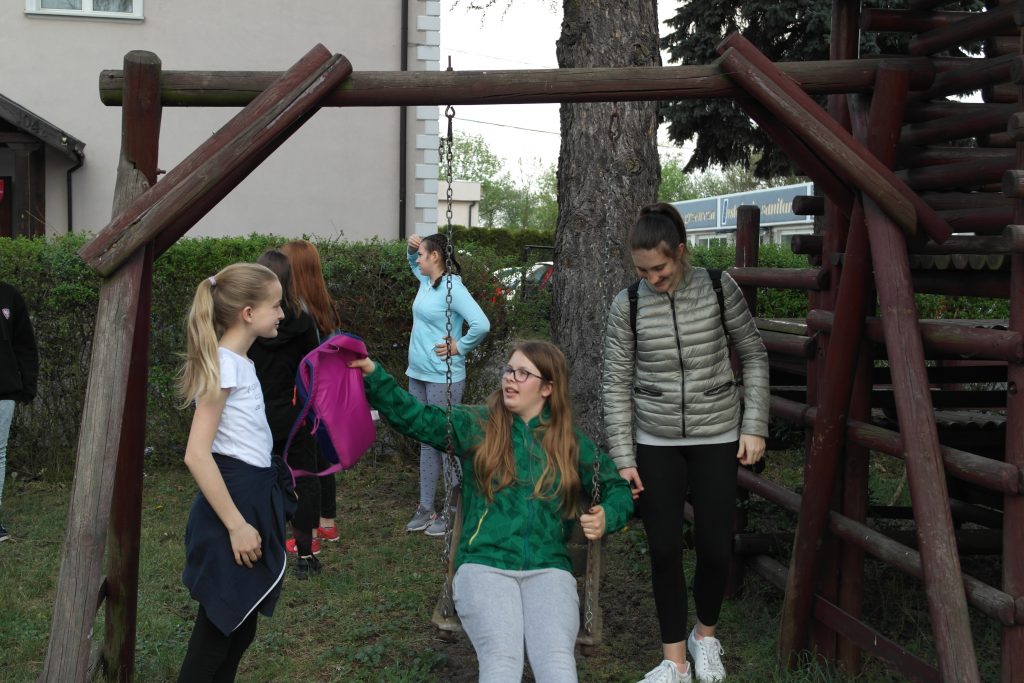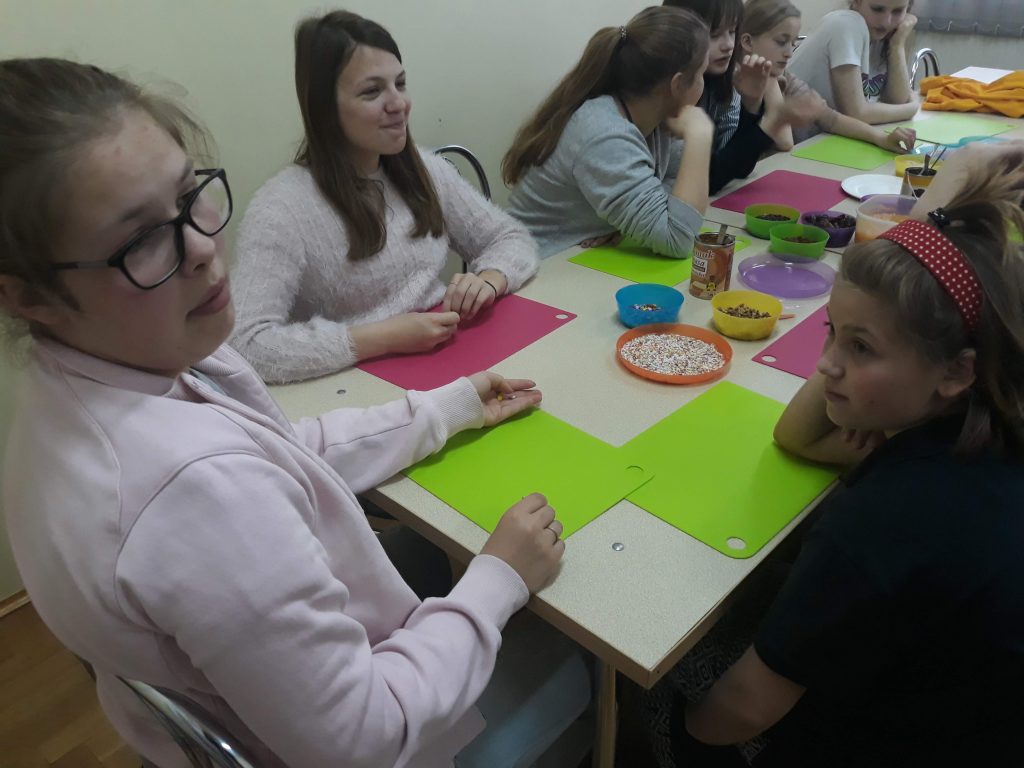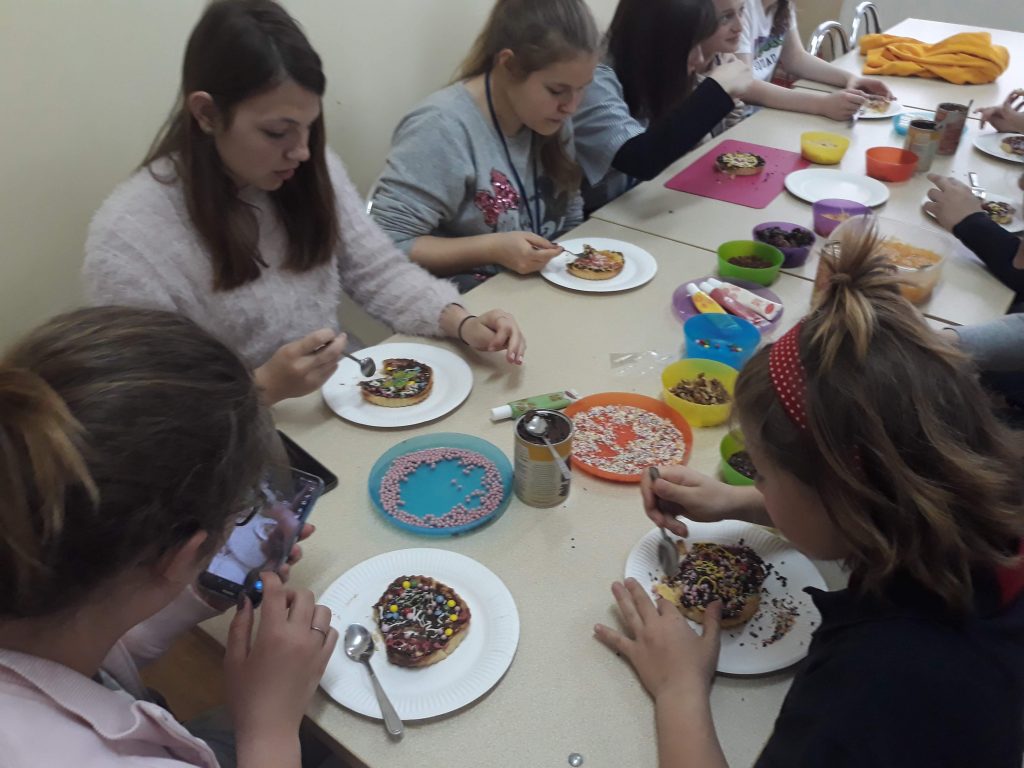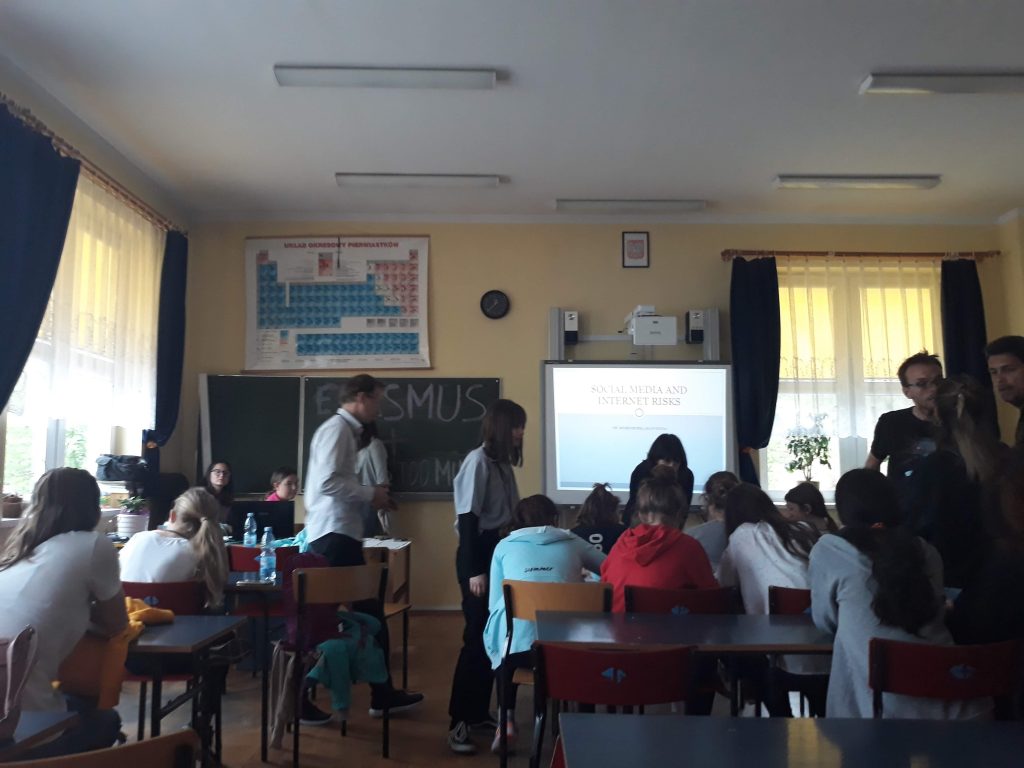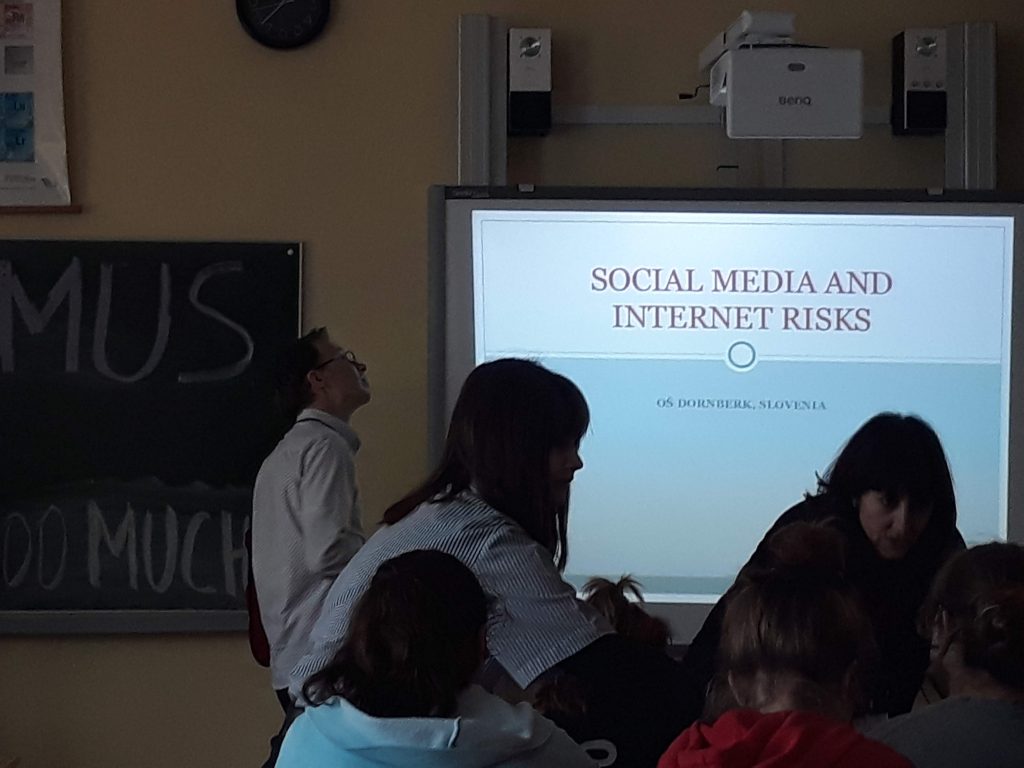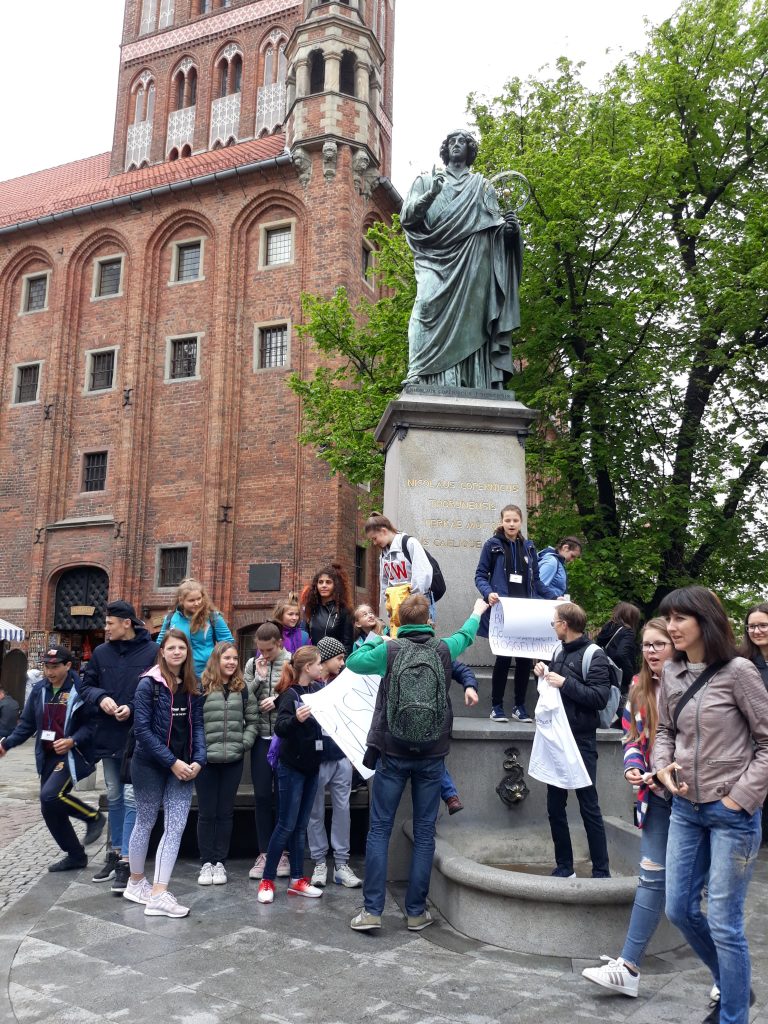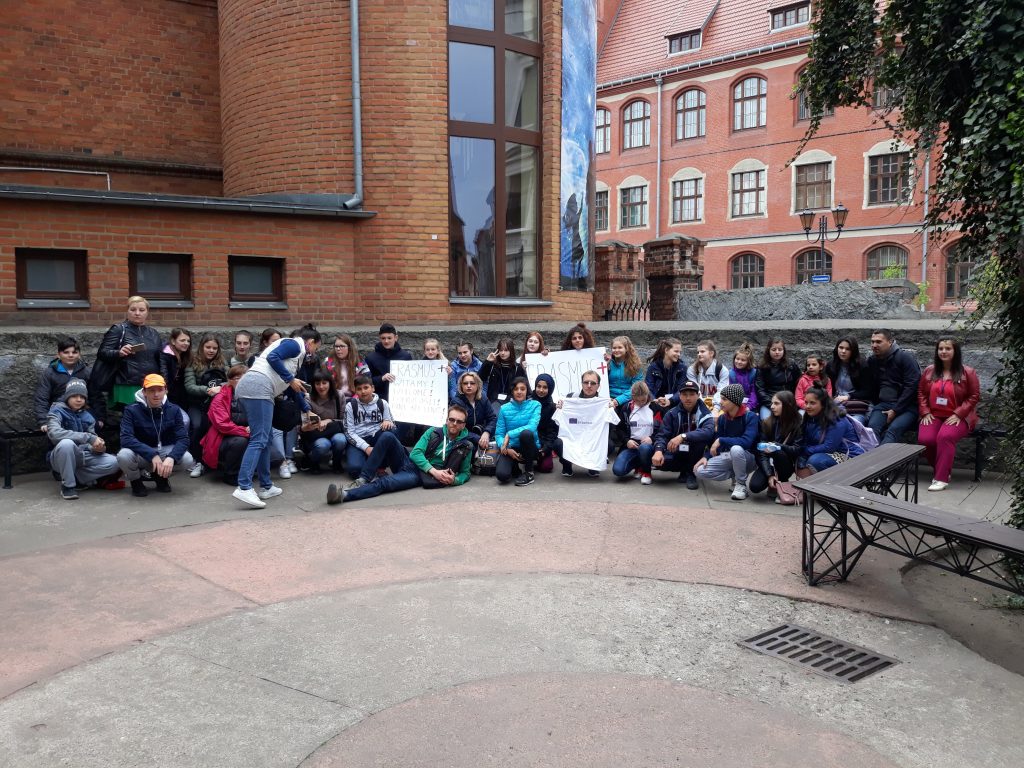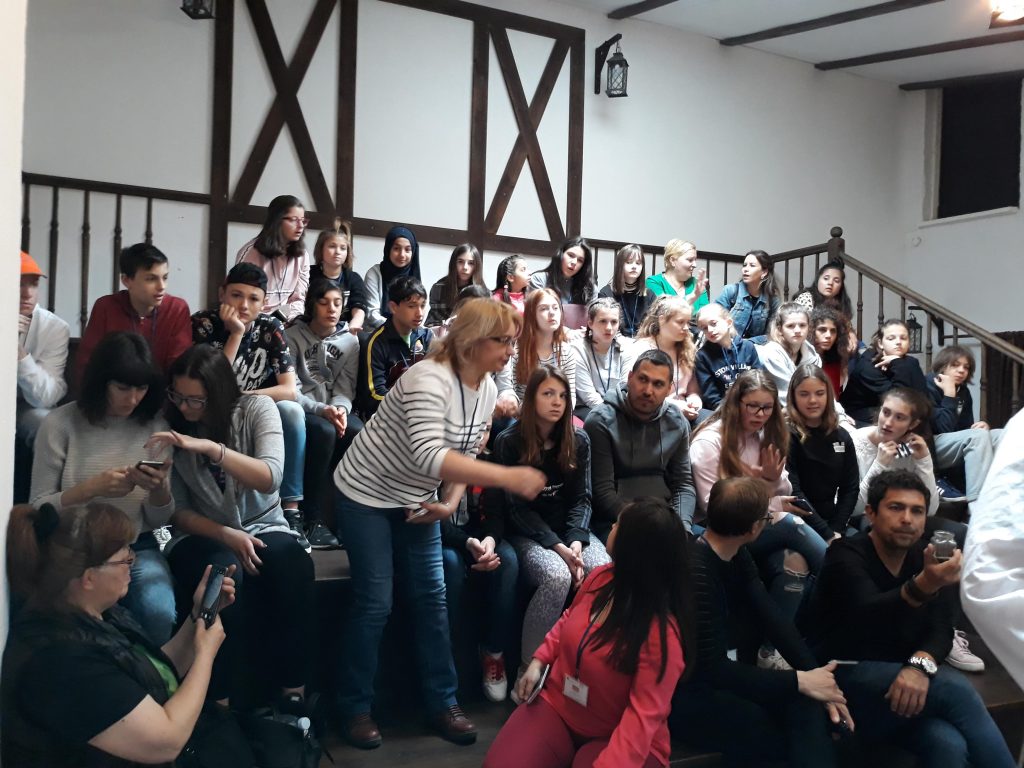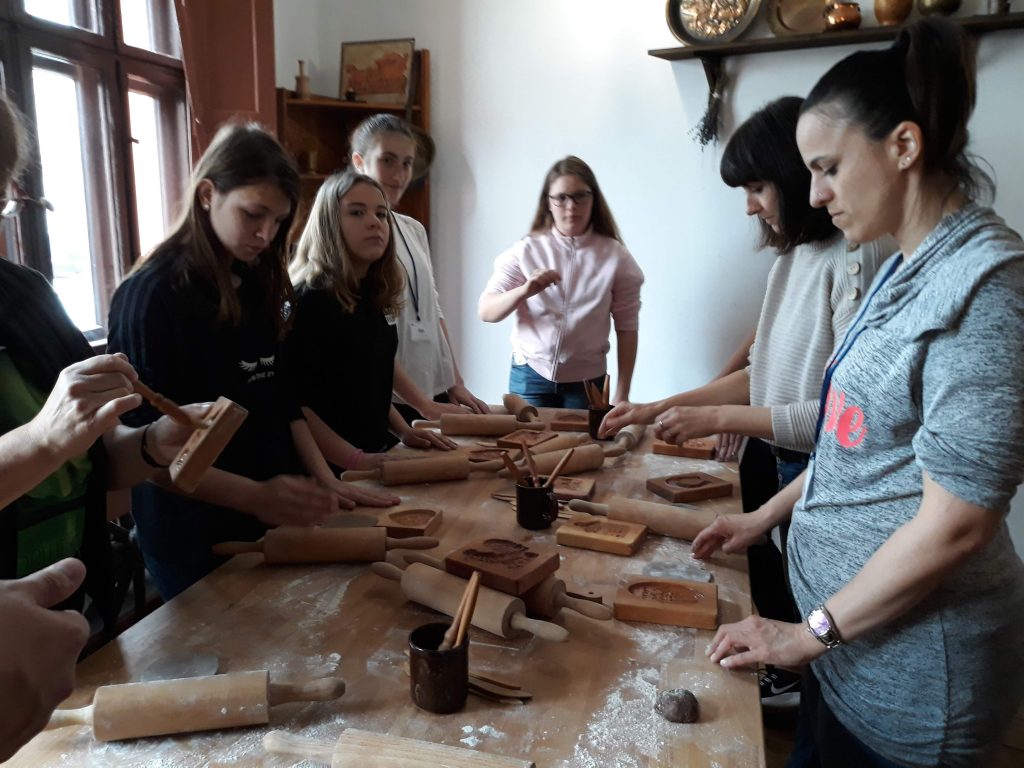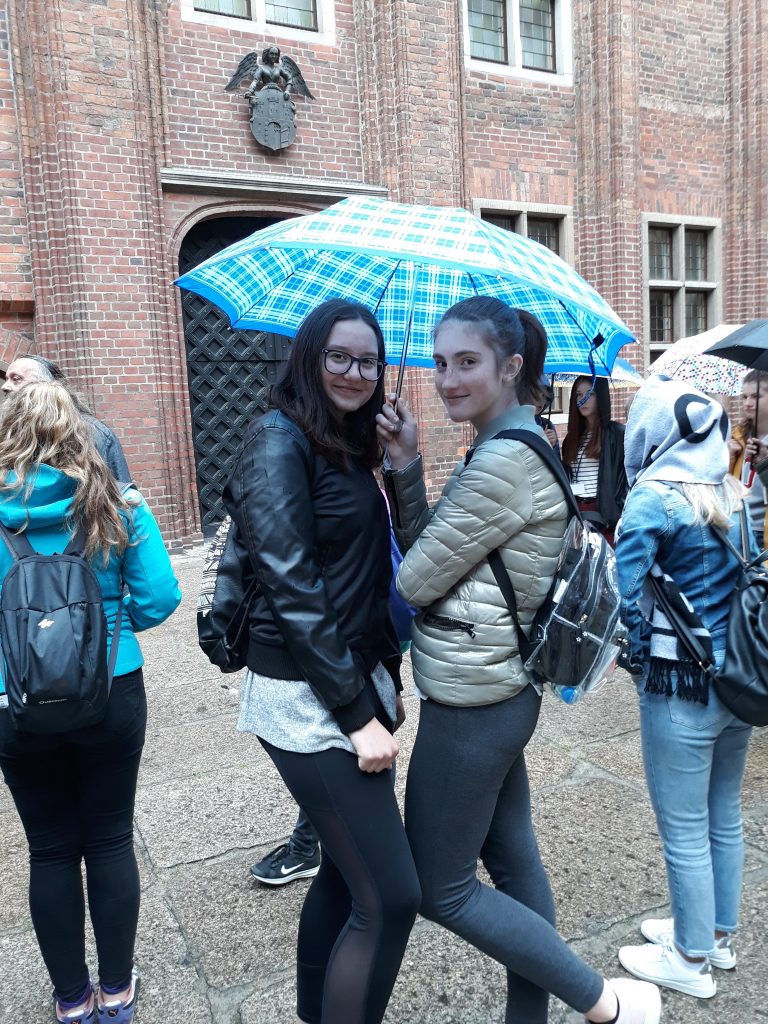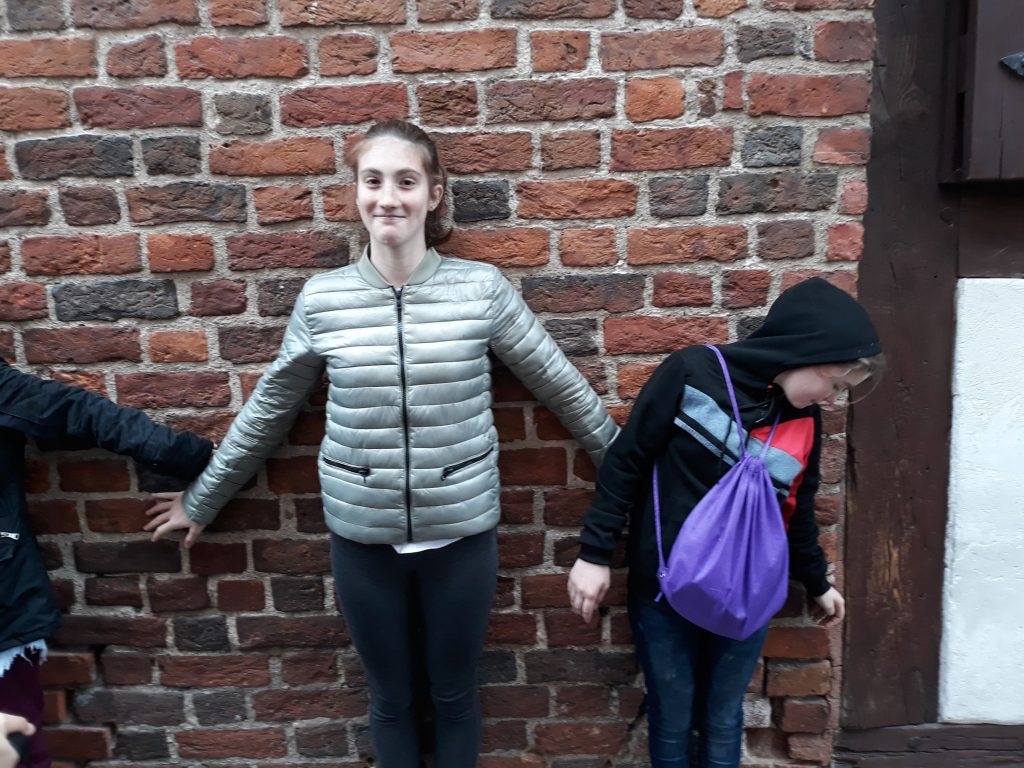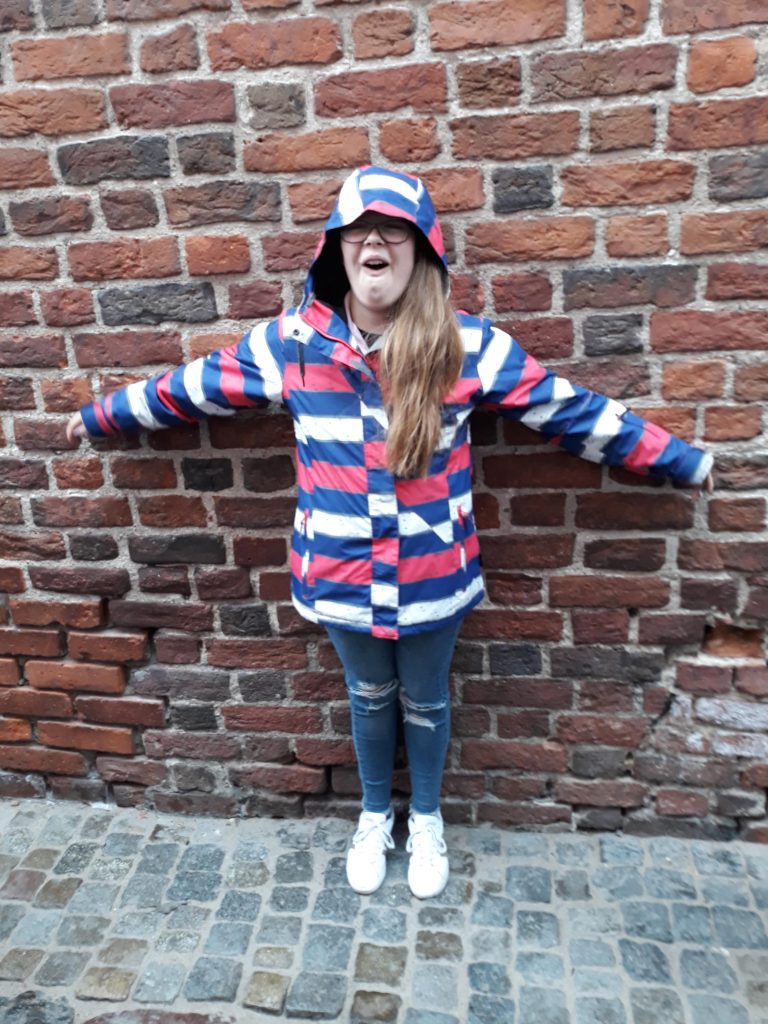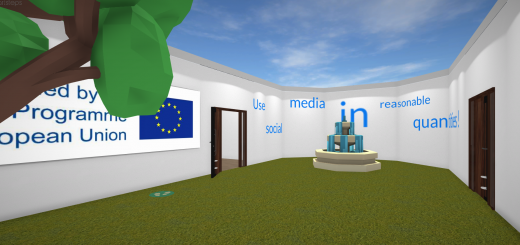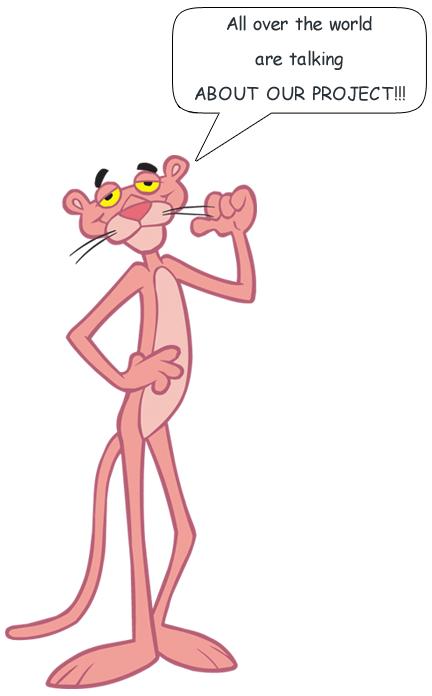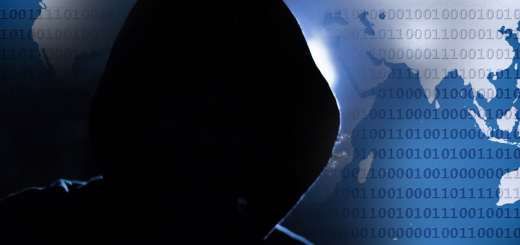Students of the Dornberk Elementary School on the Erasmus+ exchange programme in Poland
Five students of the Dornberk Elementary School, accompanied by two of their teachers, went on an interesting and exciting trip to Poland this year from 24 to 30 April in the framework of the two-year Erasmus + project entitled “Approaching Social and Civics EU Key Competences”.
The hosts were teachers, pupils and their parents of the Zespół Szkół nr8 in Włocławku, a town with more than a hundred thousand inhabitants, situated next to the 1047 km long Vistula river, in the Kuyavia- Pomerania province. The town has historically been famous for the manufacture of porcelain and brewing, but today these industries have been overshadowed by the chemical industry. It lies some hundred and fifty miles northwest of the capital of Warsaw, near the dam behind which a 60 km long accumulation lake was created for the needs of the local hydroelectric power station.
In addition to the hosts and representatives of the Dornberk School, the exchange was attended by thirteen students and seven accompanying teachers from the partner schools participating in the project. The North Macedonian School of Kavadarci was represented by Dimitri’s Academic Elementary School of Angelov Gaberot s. Vatasha, the Turkish historical city of Tarsus situated in the province of Mersin, was represented by the Faith Sultan Mehmet Ortaokulu School, and the coordinating school of the Romanian city of Roşiori de Vede- Scuola Gimnaziala Dan Berindei.
The main activity of the second round of student exchanges in the framework of this project was debates on the use of social media, online harassment and similar forms of internet abuse. The pupils presented their views and solutions on this current social phenomenon, a side product of a rapidly developing information and communication technology. Institutions and legislation around the world are finding it difficult to keep up, despite the worrying problems that it brings to curious adolescents.
Participants tackled the topic through presentations of their posters, power points and the publication of a newspaper that was created at the first exchange, when the Erasmus+ team was hosted at the Dornberk Elementary School. They also watched a Slovenian film on the topic prepared by the Ministry of the Interior of the Republic of Slovenia in the context of the preventive campaigns for schoolchildren and their parents. At the workshops, pupils discovered how to protect themselves from online abuse and follow ten golden rules in order to avoid misuse.
The exchange did not enrich young participants only from this point of view. In their communication, they had many opportunities to improve their language skills, especially English. They also could explore the similarities between their languages. On the excursions around Warsaw, Wloclawk and Torun, they learned about Polish history and important personalities, such as: the composer Frideric Chopin and Nobel Prize winner Marie Skłodowska Curie. In the birthplace of the astronomer Nikolai Copernicus, they visited the planetarium and had a go at making gingerbread following the medieval recipe. In Wloclawk, in the museum of porcelain, they themselves painted plates following the instructions of the curator. In the restored brewery in the old town centre – the home of culture, they created clay landscapes of their countries with their characteristics, visited an exhibition of young painters, a museum of measuring instruments, and in the evening visited a first league basketball match, where home team Anwil won against Stal from Ostrow Wielopolski .
When the participants were travelling on the bus, they were challenged not to use phones, but just talk, sing, and have fun without ICT. In the future, this should remain a tool and not an objective of communication between them, thus making us achieve one of the key social and civic competences of the EU. That is why the EU funds dedicated to such projects are certainly a golden investment in our future.
Erasmus+ group Slovenia

